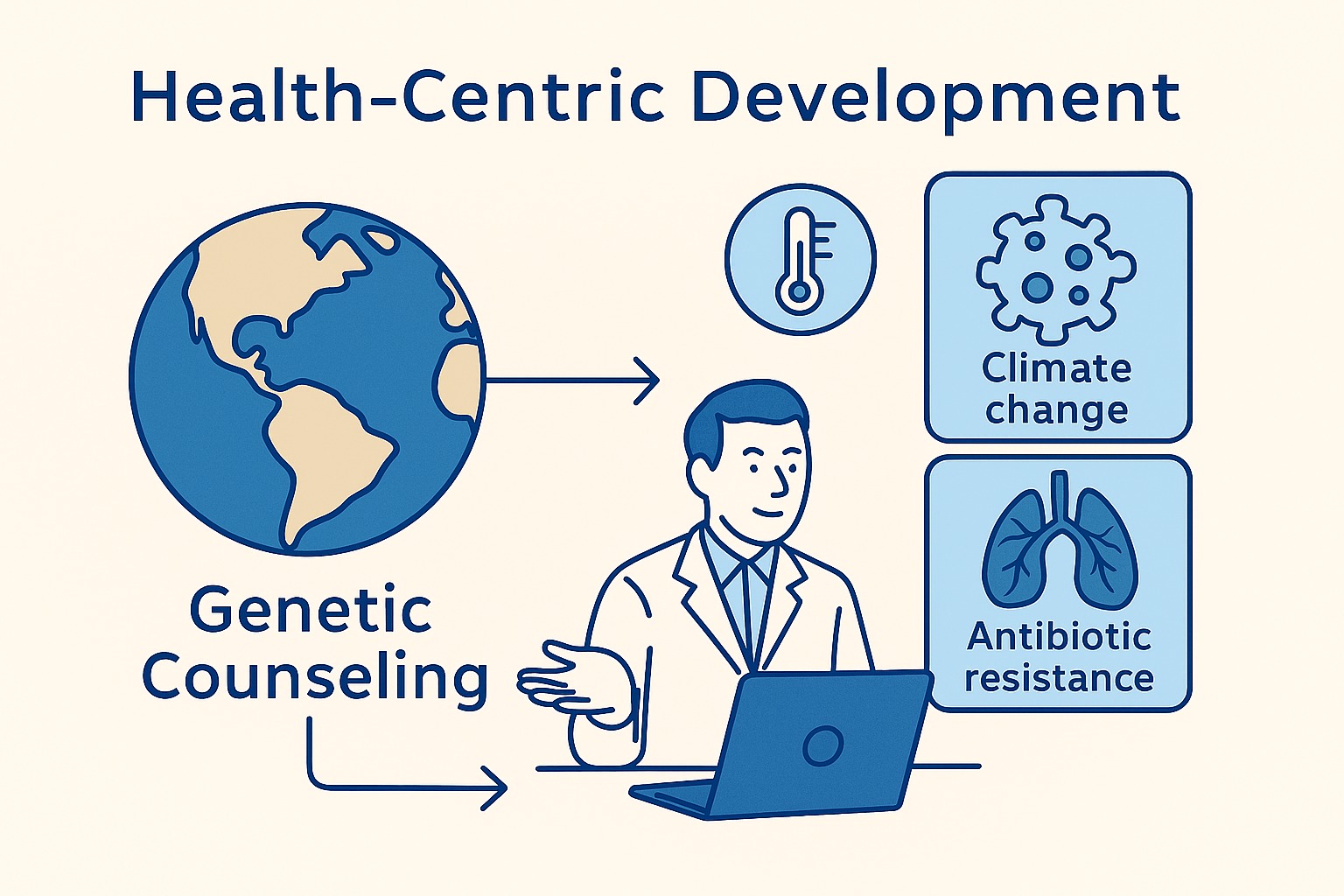September 13, 2025

Health-Centric Development: The Foundation of National Progress
Health is not just a sector—it is the backbone of national development. No country can truly progress if its citizens are burdened by disease, poor healthcare access, and preventable suffering. In today’s rapidly changing world, the importance of health-centric development has never been more urgent. Modern life brings with it a host of new challenges. Climate change is altering disease patterns, emerging infections are testing our preparedness, and global mobility is increasing the spread of health threats. Meanwhile, long-standing issues like antibiotic resistance, mental health crises, and the lack of breakthroughs in areas like HIV vaccine development continue to stall progress. These challenges are not isolated—they are interconnected, and they demand a coordinated, forward-looking response. Bangladesh, like many developing nations, stands at a crossroads. The country has made significant strides in healthcare over the past decades, but the landscape is shifting. Urbanization, environmental stress, and lifestyle changes are contributing to a rise in non-communicable diseases such as cancer, diabetes, and cardiovascular disorders. These diseases are complex, often chronic, and require long-term strategies that go beyond traditional healthcare models. Health-centric development means placing health at the heart of policy-making, infrastructure planning, education, and economic growth. It means investing in preventive care, strengthening public health systems, and embracing innovations like telemedicine, digital health records, and AI-driven diagnostics. It also means recognizing that health is not just the absence of disease—it is a state of physical, mental, and social well-being. Globally, we are seeing both setbacks and breakthroughs. The resurgence of diseases once thought to be under control reminds us that progress is fragile. But at the same time, advances in genomics, personalized medicine, and data-driven healthcare offer powerful tools to reshape the future. Cancer treatments are becoming more targeted, cardiovascular care is more precise, and public health interventions are increasingly informed by real-time data. For Bangladesh to thrive, health must be treated as a strategic priority. This requires leadership, investment, and a cultural shift that values wellness as a national asset. Health-centric development is not just a vision—it is a necessity for building a resilient, prosperous, and equitable society.